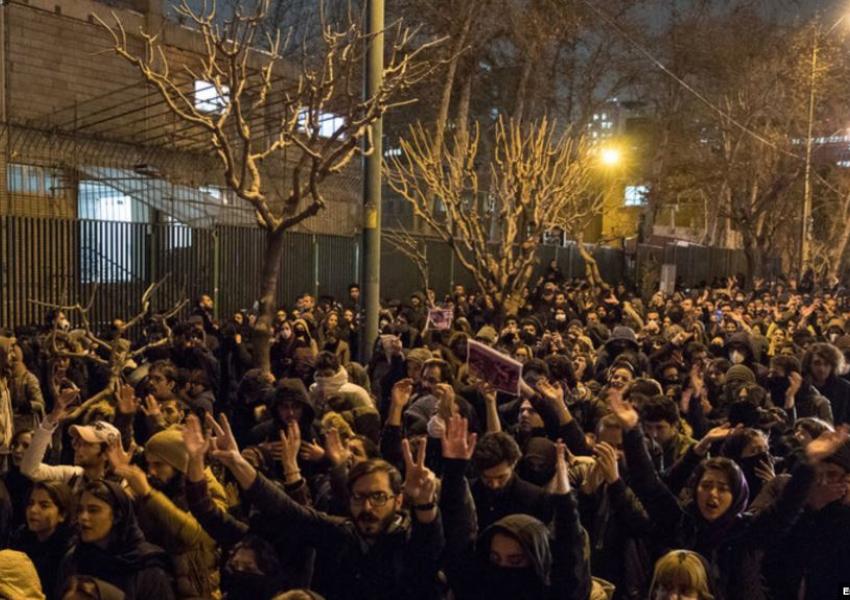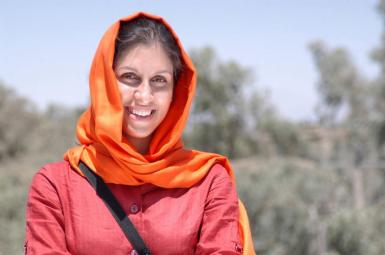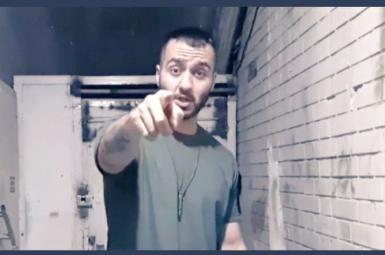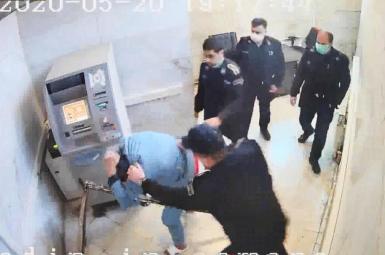
IRGC And Basij To ‘Combat Covid’ As Iran Protest Anniversary Looms
Maryam Sinaee
Iran’s Revolutionary Guards (IRGC) will launch a new nationwide mission against Covid-19 on November 10, involving 54,000 Basij bases. The timing of the operation, four days before the anniversary of November 2019’s widespread protests, has raised suspicions that the IRGC is preparing for renewed demonstrations.
Major-General Hossein Salami, the IRGC’s Commander-in-Chief, on Friday [October 30] addressed Guards commanders by video link from Tehran to explain the “mission given to the IRGC in the combat against coronavirus.” Salami said he expected commanders to convert all Basij bases into centers for health and relief workers, who would go house-to-house to identify and isolate infected people, distribute sanitation packages among low-income families, and offer health advice.
With around 4 million, mainly part-time members under overall IRGC command, the Basij offers a substantial resource. An enhanced IRGC and Basij role fighting the pandemic appears to have resulted from a meeting of the National Coronavirus Combat Taskforce held last Saturday [October 24] in the presence of Supreme Leader Ali Khamenei alongside President Hassan Rouhani, in which IRGC commanders joined heath officials. Khamenei’s public appearance – only his second since the pandemic began in February – indicated the meeting’s gravity.
The seriousness was reinforced by state television broadcasting Khamenei’s speech, in which the Leader ordered immediate military backup implementing the taskforce’s decisions, including controlling “points of entry into the country” and enforcing limitations on “unnecessary road travel.”
On Friday, Salami reiterated to commanders that the IRGC should assist the police in regulating traffic in areas under lockdown. New restrictions, President Hassan Rouhani said on Saturday [October 31], would be imposed in 25 provincial capitals and 46 cities from November 4 until November 14, with details still to be announced by the coronavirus taskforce.
Many Iranian twitterati have used Salami’s remarks as an opportunity to make jokes about his blending of military and health terms. Some recalled his unveiling in April on state television of a Covid test device called Mosta’an-110, which the IRGC chief called “an invention of Basij militia scientists” and said could detect coronavirus from 50 meters in under five seconds.
Others in the Iranian twitterati detect another dimension behind Salami’s concern for people’s health. “The anniversary of the killing of protesters is near, the IRGC is seeking to impose a security atmosphere in cities. For this reason they are going to attack the hiding places of coronavirus from November 10,” @alilahoot tweeted on Saturday with the hashtag #BloodyNovember.
Another user, @kekasafa, asked why November 10 was chosen to start the IRGC mission. “Isn’t this only an excuse for [preparing] to crackdown [on] possible protests,” he asked, suggesting the IRGC wanted the Basij militia to comb neighborhoods ahead of the anniversary.
The November 2019 protests, beginning at the sudden tripling of fuel prices, led to thousands of arrests and hundreds of deaths. According to Reuters, about 1,500 people were killed in the two weeks after November 15. Amnesty International in a report in December said at least 304 people were killed between November 15 and 18, with thousands arrested, including children as young as 15. Amnesty reported it had corroborated video evidence of “security forces opening fire on unarmed protesters who did not pose any imminent risk.”








